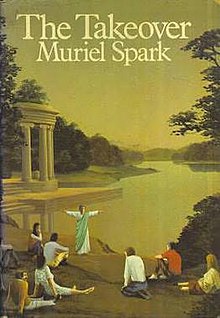
Diana is a goddess in Roman and Hellenistic religion, primarily considered a patroness of the countryside and nature, hunters, wildlife, childbirth, crossroads, the night, and the Moon. She is equated with the Greek goddess Artemis, and absorbed much of Artemis' mythology early in Roman history, including a birth on the island of Delos to parents Jupiter and Latona, and a twin brother, Apollo, though she had an independent origin in Italy.

Lake Nemi is a small circular volcanic lake in the Alban Hills 30 km (19 mi) south of Rome in the Lazio region of Italy. It takes its name from Nemi, the largest town in the area, which overlooks it from a height.

Dame Margaret Drabble, Lady Holroyd, is an English biographer, novelist and short story writer.

The Italian, or the Confessional of the Black Penitents (1796) is a Gothic novel written by the English author Ann Radcliffe. It is the last book Radcliffe published during her lifetime. The Italian has a dark, mysterious, and somber tone which fixates on the themes of love, devotion, and persecution during the time period of Holy Inquisition. The novel deals with issues prevalent at the time of the French Revolution, such as religion, aristocracy, and nationality. Radcliffe's renowned use of veiled imagery is considered to have reached its height of sophistication and complexity in The Italian; concealment and disguise are central motifs of the novel. The novel is noted for its extremely effective antagonist, Father Schedoni, who influenced the Byronic characters of Victorian literature.

Aiding and Abetting is a novel written by Muriel Spark and published in 2000, six years before her death. Unlike her other novels, it draws inspiration from a documented occurrence; however, the author acknowledges in a note that she has taken liberties with the facts.

Maggie O'Farrell, RSL, is a novelist from Northern Ireland. Her acclaimed first novel, After You'd Gone, won the Betty Trask Award, and a later one, The Hand That First Held Mine, the 2010 Costa Novel Award. She has twice been shortlisted since for the Costa Novel Award for Instructions for a Heatwave in 2014 and This Must Be The Place in 2017. She appeared in the Waterstones 25 Authors for the Future. Her memoir I Am, I Am, I Am: Seventeen Brushes with Death reached the top of the Sunday Times bestseller list. Her novel Hamnet won the Women's Prize for Fiction in 2020, and the fiction prize at the 2020 National Book Critics Circle Awards. The Marriage Portrait was shortlisted for the 2023 Women's Prize for Fiction.

The Prime of Miss Jean Brodie is a 1969 British drama film directed by Ronald Neame from a screenplay written by Jay Presson Allen, adapted from her own stage play, which was in turn based on the 1961 novel of the same name by Muriel Spark. The film stars Maggie Smith in the title role as an unrestrained teacher at a girls' school in Edinburgh. Celia Johnson, Robert Stephens, Pamela Franklin, and Gordon Jackson are featured in supporting roles.
Rachel Holmes Ingalls was an American-born author who had lived in the United Kingdom from 1965 onwards. She won the 1970 Authors' Club First Novel Award for Theft. Her novella Mrs. Caliban was published in 1982, and her book of short stories Times Like These in 2005.
Volusia Cornelia, also known as Cornelia Volusia was a Roman woman of Patrician status who lived in the late 1st century. She was the daughter of the senator Quintus Volusius Saturninus, suffect consul in 92. She was born and raised in Rome. Her cognomen Cornelia, she inherited from paternal great-grandmother Cornelia Lentula, the daughter of the consul of 3 BC, Lucius Cornelius Lentulus from the gens Cornelia.

A Summer Bird-Cage is the 1963 debut novel by Margaret Drabble published by Weidenfeld & Nicolson. The title of the novel is taken from a quotation from the play The White Devil by John Webster:

Territorial Rights is a novel by the Scottish author Muriel Spark published in 1979.
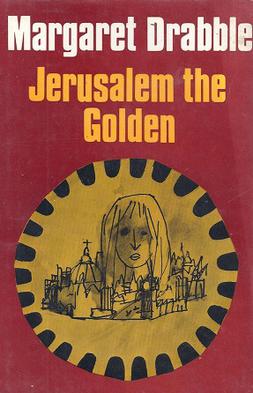
Jerusalem the Golden is a novel by Margaret Drabble published in 1967, and is a winner of the James Tait Black Memorial Prize in 1967.
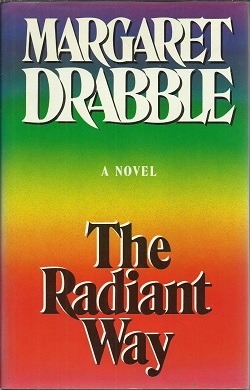
The Radiant Way is a 1987 novel by British novelist Margaret Drabble. The novel provides social commentary and critique of 1980s Britain, by exploring the lives of three Cambridge-educated women with careers as knowledge professionals.
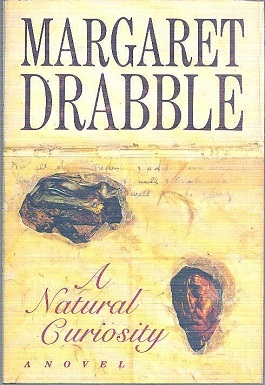
A Natural Curiosity is a 1989 novel by Margaret Drabble. The novel is an unintended sequel to Drabble's 1987 novel The Radiant Way, follows the lives of the three protagonist women first introduced in that novel. The novel continues Drabble's interest in exploring the contemporary experience of the British middle class through the eyes of women.
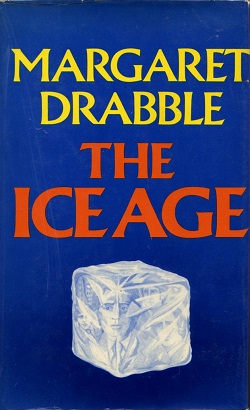
The Ice Age is a 1977 novel by British novelist Margaret Drabble. The novel follows the experiences of former BBC producer Anthony Keating as he experiences the ups and downs of life during the 1960s and 1970s. Depicting the property crisis in Britain during that period, novel diverges from her earlier psychological studies of individuals, focusing more on the "state of England".

Catwoman: Soulstealer is a 2018 young adult coming of age novel by Sarah J. Maas. It is the third novel in the DC Icons series, following Wonder Woman: Warbringer by Leigh Bardugo and Batman: Nightwalker by Marie Lu. The DC Icons novels retell the stories of renowned DC heroes in their adolescence before they become a superhero. Catwoman: Soulstealer features numerous DC characters including: Batwing, Harley Quinn, Poison Ivy, and The Joker.
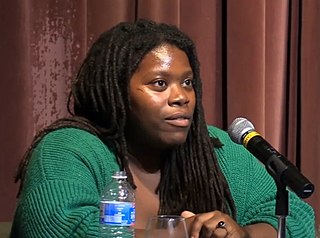
Kaitlyn Greenidge is an American writer. She received a 2017 Whiting Award for Fiction for her debut novel, We Love You, Charlie Freeman. Her second book is a historical novel called Libertie (2021).
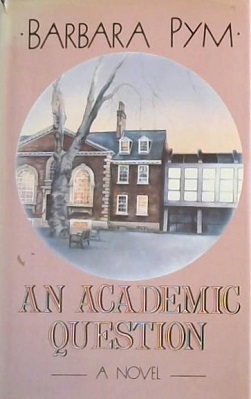
An Academic Question is a novel by Barbara Pym, written in the early 1970s and published posthumously in 1986.

Dragon Pearl is a middle grade novel written by Yoon Ha Lee and published on January 15, 2019, by Disney Hyperion under their "Rick Riordan Presents" publishing imprint. The book is a mix of Korean mythology and science fiction as the main character travels the galaxy. A short story by Lee about the characters in the book was featured in the anthology book The Cursed Carnival and Other Calamities.

The Hothouse by the East River is a novel by Scottish author Muriel Spark published in 1973. The main two settings of the novel both reflect the author's life where she lived in Manhattan and where she worked in a POW camp in Britain in World War II.
